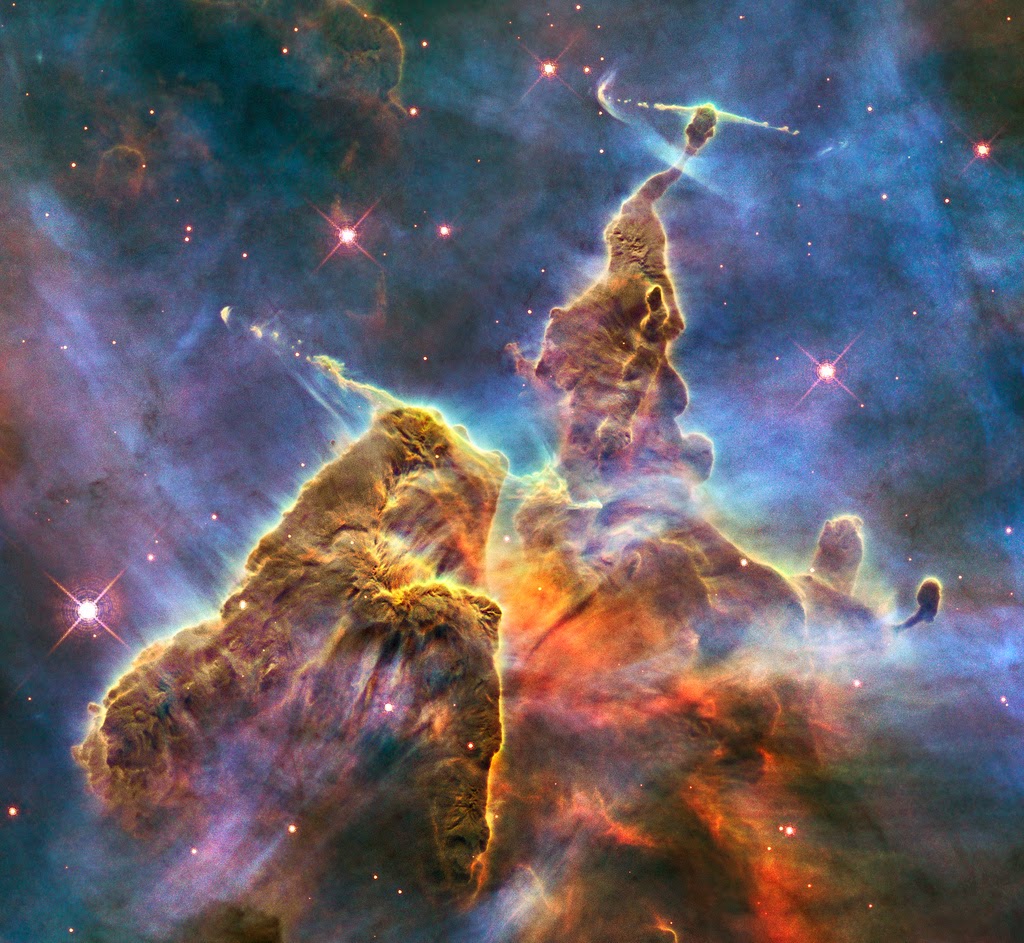
The Corporealness of God
“In this one image of the world as God’s body, we are invited to see the creator in the creation, the source of all existence in and through what is bodied forth from that source.” –Sally McFague
Below is a comment I left on a thread in the radical theology fb group (a very good discussion group that I highly recommend joining!). I left the comment in reply to Alan Darley’s criticism masked as a question: “Do panentheists think God is corporeal after all?” I say it’s a criticism masked as a question because Darley posted the comment below early on in the thread, indicating that he sort of had his mind made up already…
“In an attempt to ‘dehellenise’ Christianity, the panentheists and process thinkers have succumbed to the worst aspects of Greek thought themselves – that is a finite god like Plato’s demiurge limited by eternal ‘matter.’ It is a denial of creation ex nihilo and with it a denial of the radically different mode of being between Creator and creature (sometimes called the ‘ontological difference’). Aquinas explains that ‘some have believed God to be a body,’ since they have failed to understand that, ‘by this word “God” is signified something than which nothing greater can be thought.’”
I also talk below about the charge made in the thread of process theology being ontotheological, a criticism that’s never really bothered me as a process thinker.
…
As someone who currently thinks of themself as a process-relational panentheist I do think of the World as God’s body in some sense, and folks like Hartshorne and Sally McFague have been influential to me on this. So yeah, God is corporeal in some ways and, among other things, this has incredible implications for how we think about and treat the environment…
But unlike emanationist versions of panentheism/pantheism, like Spinoza’s, where all activity that happens around us and within us is the outcome of God “godding,” Whiteheadian influenced process-relational panentheism has multiple creative powers, not just God. In fact, as Whitehead says, “It is as true to say that God creates the World, as that the World creates God.” And that’s the radical claim of process theology that I love; that God is affected by us, not unmoved and dis-affected as someone like Anselm might claim. This doesn’t mean God is finite or reduced down to Plato’s demiurge, as Alan has suggested above; All process thinkers would still affirm that God is more than the world and cannot be fully identified nor comprehended fully by any creature. McFague and other feminist panentheistic theologians make this pretty clear. McFague, for instance, suggests in her book “God’s World is God’s Body” that just like God’s creatures have a body – or are bodies, these creatures are more than pure bodies. Likewise, God’s world is God’s body but God and God’s body are not identical, even though the world can be considered as part of God’s identity. For McFague, every entity, even atoms, can be understood as a “body.” So for McFague then (and other feminist theologians like Catherine Keller for instance), God’s transcendence is immanent in the world respectively in creation; It is through our experience of the world that we experience God’s immanent transcendence and God’s transcendent immanence. But McFague makes a big point to say that all we can experience is God’s back, citing Exodus 33:23, indicating that neither theology nor philosophy will ever find adequate terms to describe God’s face. All we can (and should!) do, is turn our attention to the planet, which is a reflection of God’s back. As McFague says we are “invited to see the creator in the creation, the source of all existence in and through what is bodied forth from that source.”
As for the charge of ontotheology leveled against process theology above, I think Don was right in one of his comments: ontotheology is not a meaningful category for process metaphysics; the poststructuralist, apophatic translations of process thought (that come from folks like Keller, Thatamanil and Faber et al) dismantled this charge a while ago.

It's remarkable how closely this tracks with Karen Barad's Agential Realism. I like it very much.
Yes! I am finally reading Barad thanks to you and Austin, Kev :-)